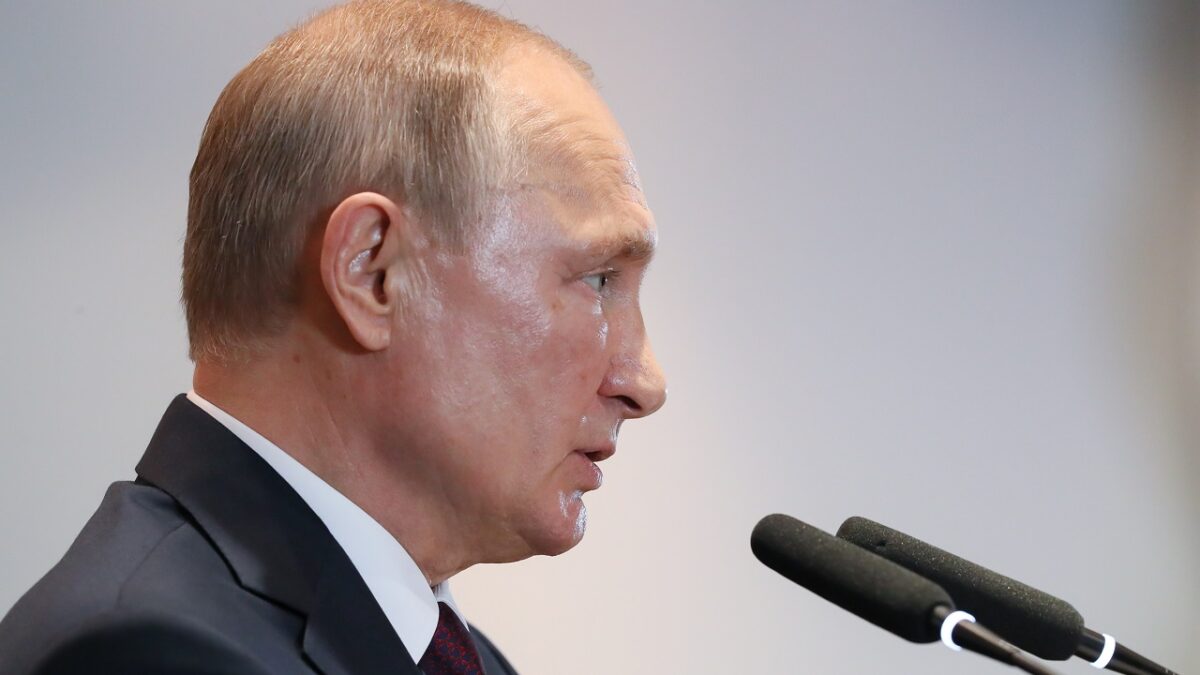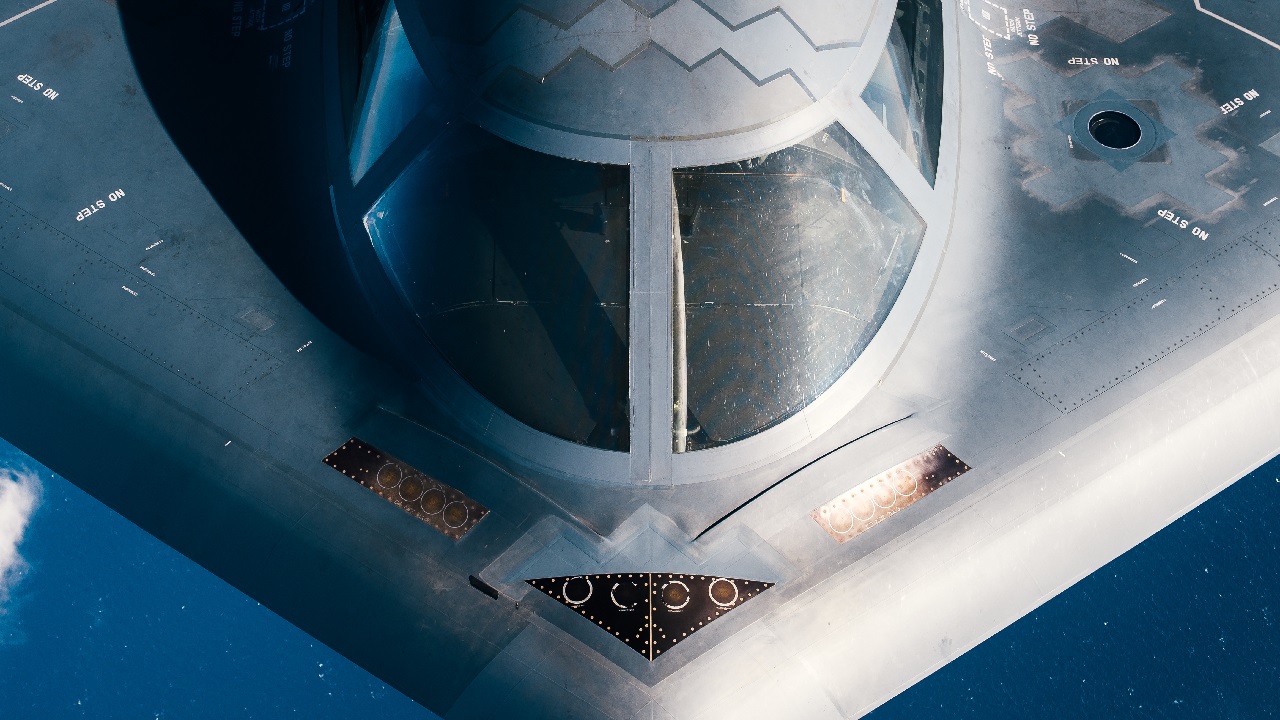Here’s How the West Should Respond to Putin’s Nuclear Threats: Russian President Vladimir Putin, humiliated by repeated defeats in Ukraine, increasing hints that his forces might use nuclear weapons to regain momentum, retake lost ground, and simply punish the Ukrainians.
How Should the West Respond to Putin’s Nuclear Threats?
Ukrainian President Volodymyr Zelensky is correct that Putin will likely use nuclear weapons if he believes he will face no consequences. Putin’s ego is paramount. He both despises Zelenskyy for outshining him militarily, politically, and diplomatically and resents that Ukraine’s success has impinged on the historical legacy Putin sought to craft. Whereas Putin saw himself as surpassing the legacy of Catherine the Great, who expanded Russian territory and ushered in a golden age, today, he has become a smaller, weaker version of Tsar Nicholas II, under whose rule Russia collapsed.
More practically, Putin instinctively knows that if he loses, he will face revolution.
While the West is right to fear Putin’s possible Parkinsonic finger on the nuclear button, it is crucial not to fumble the response. By telegraphing fear of nuclear Armageddon, President Joe Biden only enhances Putin’s power and encourages further brinksmanship. Even worse has been the response of French President Emmanuel Macron, who has undermined deterrence by announcing that he would stand down France’s own nuclear forces in the event of a Russian launch. This is dangerous because it undermines the deterrence that provides the best means to avoid a nuclear exchange.
To shrink or retreat in the face of a nuclear threat would guarantee more frequent nuclear crises. If Putin’s tactics work, Kim Jong-un will regularly threaten Seoul or Tokyo. Pakistan, whose economy makes Russia look solvent, will threaten Delhi and Mumbai. China will use nuclear weapons to extort the world over Taiwan, a country to which it has no historical or legal right.
Instead, it is time for the West to make clear, both publicly and in detail privately, the consequences of Putin’s actions.
Russia and Putin Must Pay a High Price
First, it is time to publish a list of all those subject to death should Putin use even a low-yield nuclear weapon. In 2006, I did a deep dive into the legality, both in international and U.S. law, with regard to assassination. Bottom-line upfront: The conventional wisdom that targeted assassinations violate the laws of war and Congress is wrong. To eradicate military leaders and civilian commanders is ethnical if it can forestall far greater violence. For men like Putin and the generals who surround him to believe they can order the deaths of hundreds of thousands of Ukrainians and their own people with impunity is counterproductive to pursuing peace. Simply put, if even Putin’s most loyal henchmen understand that a nuclear blast in Ukraine will lead to the end of their own life, they are more likely to forestall Putin’s actions. The risks inherent in cutting Putin down are high, but they are better than the certain death the West must inflict should Russia use nuclear weapons.
Second, the United States should simply publish a list of Russian cities equivalent in size to Ukrainian cities. Kyiv, for example, has a population of approximately 2.7 million. It is equivalent in size to the combined population of Novosibirsk and Yekaterinburg. Odessa has a population of 1 million, equivalent to Volgograd. While the White House need not enunciate the principle of an eye for an eye, the implication should be clear for ordinary Russians. Yes, collective punishment is illegal under international law, but the laws of war only work when all sides adhere to them. Simply put, Russians must know they cannot remain aloof. If such moves encourage Russians to evacuate their own cities until the crisis ends, so be it. Putin should understand the economic disruption inherent in making nuclear threats.
Third, as the possibility of a nuclear exchange looms, the West should signal to Russians, who are rightly proud of their cultural heritage, that now is the time to safeguard it. The West should publicly call for the Hermitage Museum in St. Petersburg or the Pushkin Museum in Moscow to remove their paintings, statues, and artifacts to underground storage in the countryside. Hopefully, this will prove to be an unnecessary precaution. Still, it is essential Russians understand that Russian use of nuclear weapons will mean that war can no longer be limited to Ukrainian territory.
The United States should not saber-rattle with a threat of nuclear retaliation, especially given its ability to retaliate accurately and precisely with non-nuclear weapons. Deterrence is not simply a military strategy but a psychological one as well. The Biden administration should not fear that raising the stakes for Russia would be irresponsible warmongering. Reticence and weakness in the face of aggression never bring results; meeting challenges head-on with strategies to prevail does. Had President John F. Kennedy backed down on Cuba, it is inevitable that the Soviets would have pressed their advantage elsewhere. They would not have washed their hands of conflict and gone home.

Russia’s Topol-M missile system TEL
Likewise, while Putin is correct that the United States is the only country that has used nuclear weapons in wartime, the recognition of just how devastating those weapons were—even if they forestalled the need to invade Japan—led to decades of arms control treaties and a stigma that persists to this day. To erase that stigma lowers the bar for future use. Too much is at stake for Biden to go wobbly now.

Russian President Putin. Image Credit: Creative Commons.
Now a 1945 Contributing Editor, Dr. Michael Rubin is a Senior Fellow at the American Enterprise Institute (AEI). Dr. Rubin is the author, coauthor, and coeditor of several books exploring diplomacy, Iranian history, Arab culture, Kurdish studies, and Shi’ite politics, including “Seven Pillars: What Really Causes Instability in the Middle East?” (AEI Press, 2019); “Kurdistan Rising” (AEI Press, 2016); “Dancing with the Devil: The Perils of Engaging Rogue Regimes” (Encounter Books, 2014); and “Eternal Iran: Continuity and Chaos” (Palgrave, 2005).

